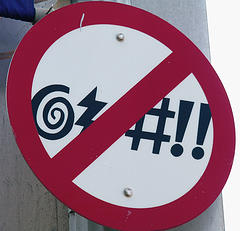Bulgar language
Formerly spoken in
- Turkic languages Oghurisch Bolgarisch
XBO
The bolgarische or proto Bulgarian language was the language of the Proto-Bulgarians. It is believed that Bolgarisch was the language at least the leading layer of the Great Bulgarian Empire of the 6th and 7th century and then, on the other hand, came through migrations on the one hand in the Danube region and the Balkans to the middle Volga, where it is received at the Volga Bulgars.
From the time of the Great Bulgarian Empire, however, direct language certificates are obtained, certificates for the language of the Danube Bulgarians are mostly in their interpretation controversial, only the language of the Volga Bulgarians is of a much later period ( 13-14 said. Century) a sufficient number in front of voice products, whose interpretation is generally accepted.
Due to this late wolgabolgarischen language certificates and a limited part of language certificates of the Danube Bulgarians Bolgarische is attributed to the branch of the Turkic languages oghurischen to which the only still spoken language and the Chuvash heard.
To what extent are other forms of speech were in addition to the in this way partly reconstructable language in Proto-Bulgarians in use, and if so what, can not be conclusively clarify on the existing source base.
Speech and language remains the Danube Bulgarians
The Danube Bulgars, ie, those proto-Bulgarians, who founded the First Bulgarian Empire in the Balkans under the leadership Asparuchs have left a large number of inscriptions, especially in the northeast of present-day Bulgaria, but also in other part of their empire. These so-called Proto-Bulgarian inscriptions, however, are mostly written in Greek and therefore only sources of proto- Bulgarian names, titles and more individual words. There are two inscriptions that are supposedly written in Greek characters in proto Bulgarian, their reading and interpretation is controversial.
In addition, inscriptions exist in a native script, often referred to as " runes ", which are usually attributed to the Proto-Bulgarians. These usually consist of individual characters or character groups ( words? ), Only in Murfatlar in Norddobrudscha whole texts were found, which have been so far not deciphered in a generally accepted form.
Another language certificate for the language of the Danube Bulgarians are the Proto-Bulgarian chronological expressions in the so-called Bulgarian prince list which handed down in the Slavonic language in three manuscripts of a known Ellinskij letopisec Russian Collective Work, but undoubtedly Bulgarian origin. Although the details of the underlying calendar system there is no consensus that each consisting of two words expressions but generally interpreted as compounds each an animal name that is part of a widespread in China and in many Central Asian peoples twelve animal cycle, and an ordinal. That it is in fact dating in proto Bulgarian word for these compounds, results from a written in Greek inscription of the Bulgarian ruler Omourtag that has been found near the village of Čatalar (Car Krumovo ). This in the end is explicitly dated twice, once in Greek with a dating after the Byzantine calendar and once in Bulgarian with a phrase that occurs in almost the same form in the Bulgarian Prince list.
However due to the Proto-Bulgarian in the inscriptions, of the Bulgarian prince list or obtained indirectly in reports of foreign origin persons name and title is not a linguistic classification of languages of the Danube Bulgars. These contain, in addition turksprachlichen definitely also elements of Iranian origin. However, the animal names and ordinals contained in the chronological expressions of the Bulgarian prince list suggest a relationship of the underlying language with the language of wolgabolgarischen inscriptions and the modern Chuvash.
In Bulgaria, the proto- Bulgarian Language probably died from no later than the 12th century and was replaced by the language of the Slavic majority population. However, the change of language may have begun much earlier, as early as the end of the 9th century, the Slavic Old Bulgarian had become the language of the Church and public life under Tsar Simeon.
Loanwords from Donaubolgarischen have been preserved in the Slavic language forms that have taken its place, and are both in the Old Bulgarian as well as in today's Bulgarian busy, eg urva ( Bulg урва - Abyss / steep slope ), tojaga ( Bulg тояга - floor / bar, turkey turkish değnek ), Korem ( Bulg корем - belly, turkey turkish Karin ), kon ( Bulg кон - horse), etc.
Wolgabolgarisch
The Volga Bulgars have also taken over in the 10th century with the adoption of Islam, the Arabic script. From the period from the 10th century until the Mongol conquest of their territory in the 13th century, however, no indigenous written records have survived.
Get the Wolgabolgarische is only in the so-called wolgabolgarischen grave inscriptions from the 13th/14th century. Century, written in Arabic script and contain a mixture of Arab and formulas wolgabolgarischen words. On the basis of which can be the same branch of the Turkic languages Wolgabolgarische like the modern Chuvash assign.
The language has adopted some words from the Kipchak.
After the incorporation of the territory of the Volga Bulgars in the Ulus Jochi ( the so-called Golden Horde ), the Wolgabolgarische displaced by Kipchak varieties in a large proportion of the population from which the present-day Tatar has emerged.
A continuation of wolgabolgarischen language forms the modern Chuvash. This has probably in a non- Islamized outskirts of the Volga Bulgarian Empire, whose population originally spoken varieties of the finn opera mix branch of the Finno -Ugric, but had then adopted the language of the Volga Bulgars.




:origin()/pre09/2b9d/th/pre/i/2007/215/5/0/such_vulgar_language_kh2_by_jahchamohm.jpg)




